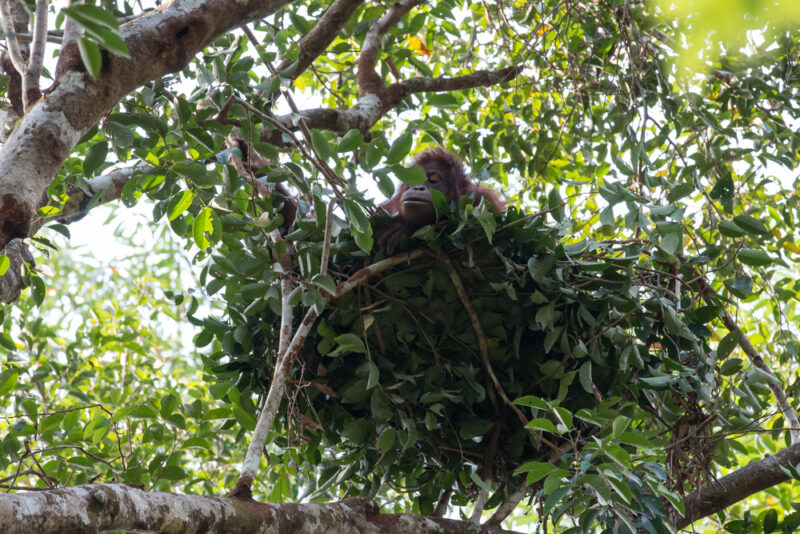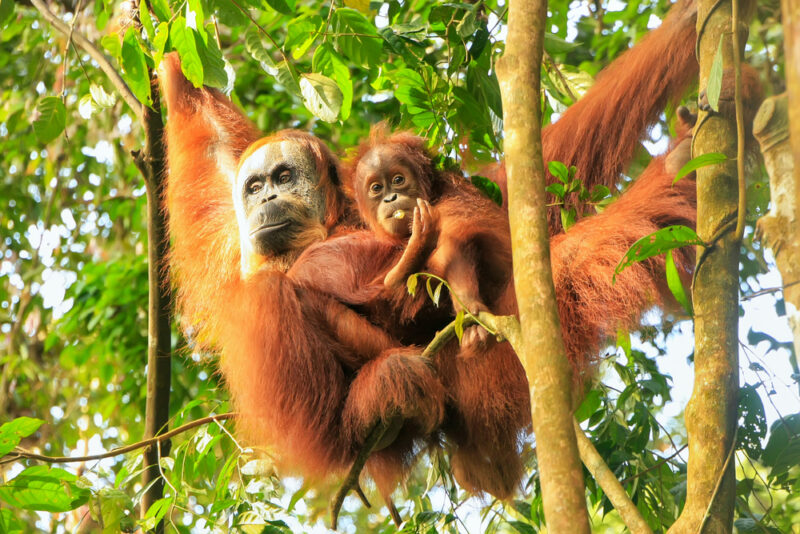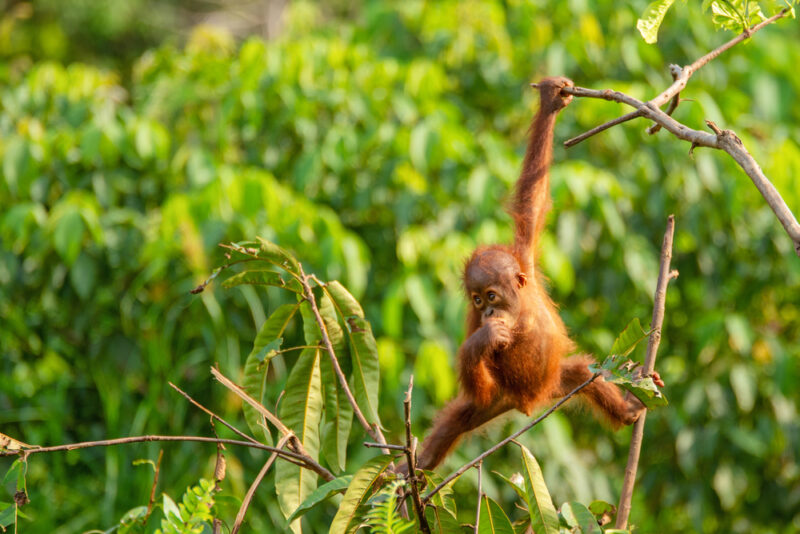Sumatran orangutans sleep in intricately built nests high in the trees. They skilfully weave twigs, leaves, and branches daily to create these comfy beds. The craftsmanship takes years to hone, so mothers start teaching their young when they’re just six months old.
It takes around seven years of “schooling” for the young orangutans to learn how to engineer a proper nest. These are learned skills, not something a young primate is born knowing how to do, like a weaverbird does. Captive-born primates, or those that do not have a role model to observe, become “incompetent nest builders,” according to a new study.
“The fact that it takes them so long to acquire this skill shows us that it’s much more complex than we realized,” says Andrea Permana, lead author of the study.
They build the nests about 20 meters high in the canopy. Fully grown male orangutans weigh up to 130kg, so the nests must be incredibly strong, or they risk falling four stories to the ground below. Some older primates become master builders, creating pillows, blankets, padding, and roofs.

Photo: Shutterstock
Going to school
Researchers have followed a group of 45 orangutans in Indonesia’s Gunung Leuser National Park for over a decade. As the baby primates reach six months, they start to show interest in their mother’s daily engineering project. Sitting close by, they try to mimic her actions.
Eventually, as their dexterity improves, the young orangutans start to create small structures out of twigs. At around one year old, they can construct simpler day nests. These have fewer layers and fewer elements to build.
By the age of three, many have built their first full night nest but still prefer to curl up with their mothers to sleep. At about six years old, the orangutans attempt to sleep in their own nests, always built close to their mother. Many still “nest hop” into their mother’s nest during the night.
Eventually, between the ages of seven and nine, all the orangutans are expected to leave their mother’s side and stay in their own nests full-time.

Photo: Shutterstock
A good night’s sleep
Nest building protects the orangutans from the elements and predators but also lets them sleep better. The concept of a good night’s sleep is often only associated with humans, but it is true of many animals. Studies show that orangutans that build comfortable nests get a longer and deeper sleep than primates that do not build nests.
The researchers believe this gives us a clue about how our ancestor’s brains developed. Our ancestors and orangutans learned to build nests at a very similar time.
“The more rested you are, the more innovative you can be,” commented Permana. “Maybe you’re more curious, your memory is better, and you can solve problems better. The knock-on effects of that on the success of our ancestors is pretty undoubtable.”






